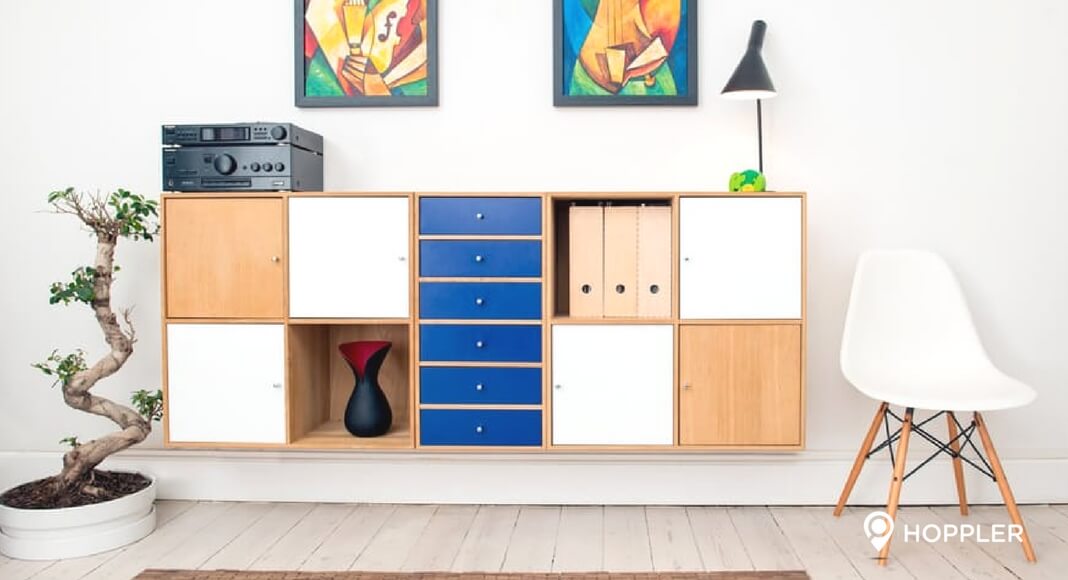Advantages of Condo Living During the Pandemic
If you’re used to city life, you’ll know that everyone lives in units. Rentals and complexes represent mobility, convenience, security, and ensure that you can live in the city and not take up too much space (don’t feel too bad about this, think about it as space you’ll keep paying for the next several years).
A condominium, for example, is located in a complex or building of different units separately owned by individuals or groups. The difference between a condo and an apartment is that while the latter is usually rented, a condo is bought and owned. Its main advantage is that residents live in a shared community without having to worry about the property upkeep because these are covered by the condo fees.

But enough about definitions. We’re here to talk about what it means to live in a condo during an ongoing global pandemic. At first glance, living in a condominium may seem risky compared to living in a house. It means you’ll be living and interacting with several strangers in the same building, and it looks like there’s a higher chance of getting infected. Compared to a household, you have no idea where these people go every day, and possibly coming home carrying several symptoms.
If this hasn’t officially scared you off yet, hear us out: condotel living can be just as safe as living in a house. Condominium life may have its disadvantages regardless of an ongoing pandemic, such as construction defects, disrepair, and poor owner warranty programs, but all these come down to management. Provided you do intense research, cross-reference tenant reviews, communicate with building owners, and come across a unit with good management and responsible shared living policies, you’ll see that the pros outweigh the possible cons.
Aside from the general convenience of this living situation regardless of a pandemic, the community management within a condominium complex may just be the thing to keep you safe and healthy. Below are several advantages of condo living amidst a pandemic.
Financial aspect
We’ve all been through it the first year of the pandemic. The lockdown halted all work operations, and landlords and renters found it difficult to deal with how they’re going to pay off their bills without their monthly salaries. Renting an apartment means having to pay for the unit each month, while owning a condominium means you have to save up for a mortgage payment.
There are advantages and disadvantages of both options, but in the context of a pandemic, owning a condo means you won’t have to worry about monthly payments and have the opportunity to build your assets and increase your equity. The insurance is also considerably cheaper compared to even single-family houses because it covers only the inside of the unit. Utility costs are also cheaper– smaller floor areas mean you won’t have to shell out as much for the air conditioner, and a lighter bill is always reassuring amidst a pandemic that’s threatening job security.
Urban living
Living in the heart of a city means that space has to be maximized, hence the several buildings of stacked condominiums and apartments. While some people may prefer living in places with less of the hustle and bustle, condominiums have closer access to their offices. Heavy traffic is a nightmare if you’re coming from farther away, and constantly being late can affect your work performance.
Living in an area closer to your work means not only saving time by avoiding traffic but avoiding the fatigue from a long commute. With social distancing policies in place, it also means less interaction with the sea of commuters and less risk of being infected. Moreover, if you drive to work, you’ll take only a few minutes to get there, cutting out a significant portion of how much you spend on fuel.
Aside from work, condominiums are also usually located near business and lifestyle districts full of restaurants and establishments. Being close to these means you can get groceries, run to the bank, and even eat out by simply walking to these places instead of having to travel far and spending most of your time outside in a public transportation vehicle.
Free amenities
“C” in condo living is for convenience. Condo buildings come with swimming pools, gyms, courts, and other amenities that you normally wouldn’t have in other living situations. This way, you can squeeze in some physical activities in your daily or weekly routine without having to go spend on subscriptions to gyms that you’ll have to commute to.
It’s not easy to do your usual routine during a time where you also have to worry about being in contact with people who may have symptoms. Being in a building with free amenities that lets you go out of your living areas but still be in a safe environment is a huge plus.
Proactive Management
The cost of living in condominiums and multi-dwelling buildings includes regular upkeep and maintenance. With an ongoing pandemic, the management is expected to take maintenance and the safety of its residents seriously and provide additional sanitation protocols. This includes staying on top of disinfection and contact tracing, as well as establishing information networks and communication systems through online platforms.
Communication systems
A shared announcement page, bulletin board, or group chat helps the residents keep up to date with COVID-19 updates, disinfection schedules, and general quarantine provisions. These also have a directory of hotline numbers in case of any emergencies. The staff may take the extra step and provide fact sheets, posters, newsletters, or instructional videos to make sure the tenants are practicing proper hygiene practices such as handwashing and grocery disinfection. All this is to assure the residents that they’re safe in their condominiums.
Security and contact tracing
Condo buildings also have CCTV cameras to monitor the comings and goings, as well as security guards that regularly patrol the perimeter. This does a lot to make sure the building’s residents are safe from burglars and the like, but it’s an added advantage for contact tracing. The management and security now also take temperature checks and require the names and contact numbers of people who go in and out of the building to monitor any symptoms of infection.
Disinfection
The management has a team that does the rounds every day to clean shared amenities and spaces like the lobbies, hallways, elevators, and lounges. The cleaning staff also makes sure to clean high-touch surfaces such as doorknobs, light switches, staircase railings, faucets, and elevator buttons frequently to make sure the building doesn’t become a breeding ground for the virus and infect all its residents. With these measures in place, you won’t have to worry about anything like burglars or infected persons.
If you have other ideas to keep yourself and the other tenants safe, you can always talk to the management. If it’s not already being done in your building, you can suggest they provide each unit with free sanitation kits complete with hand sanitizers, hand soaps, and face masks.
Emergencies
Should the unthinkable happen, you’ll at least have access to the building hotline. This is extremely beneficial, especially if you live by yourself. The management has protocols in place to help infected persons get emergency medical care until they’re taken to the hospital.
Sense of community
This is the one we simply can’t leave out. One good thing that came out of the lockdown was a shared sense of community especially among people living in the same buildings. It was heartwarming to see stories online of how people living in multi-dwelling buildings began reaching out to the other tenants and started initiating limited group activities.
Some organized a grocery schedule with designated buyers every week to make sure everyone gets what they need without going out to buy just for themselves. Some started doing shared group activities, like crafting, playing board games, and having dance workout sessions. Taking part in activities like these in safe and controlled environments with fellow residents is significantly safer compared to going out and meeting up with other people in public areas.
Fostering a sense of community doesn’t have to be hard, especially when there are online groups, websites, group chats, or conversation threads where residents can interact, even while inside their respective units. If you like to cook and sell some of your dishes, you don’t have to go far to look for potential customers. If you want to order something online, you can ask if someone else wants to order too so you can split the pricey shipping fees. There are no limits to the benefits of condo living once you get to know your neighbors. It’s easy to get creative when you’re working with other people to achieve a common good.
While it may seem unsafe at first glance, the benefits of condo living come in handy when you think about your daily routine during a pandemic. Proximity to lifestyle areas for necessities, free amenities, regular maintenance, lower bills, and sharing a sense of community with other residents take the fear and stress of life in general quarantine. If you’re constantly putting yourself at risk during long commutes every day because you think it’s the cheaper option, it’s time to reassess your situation, look up some options, and consider living in a condo.




